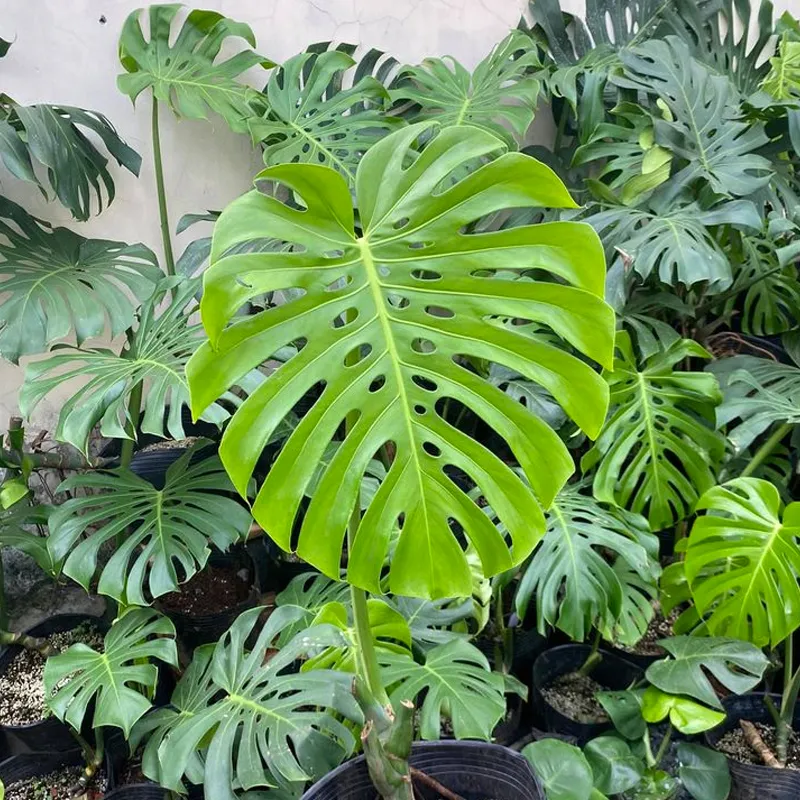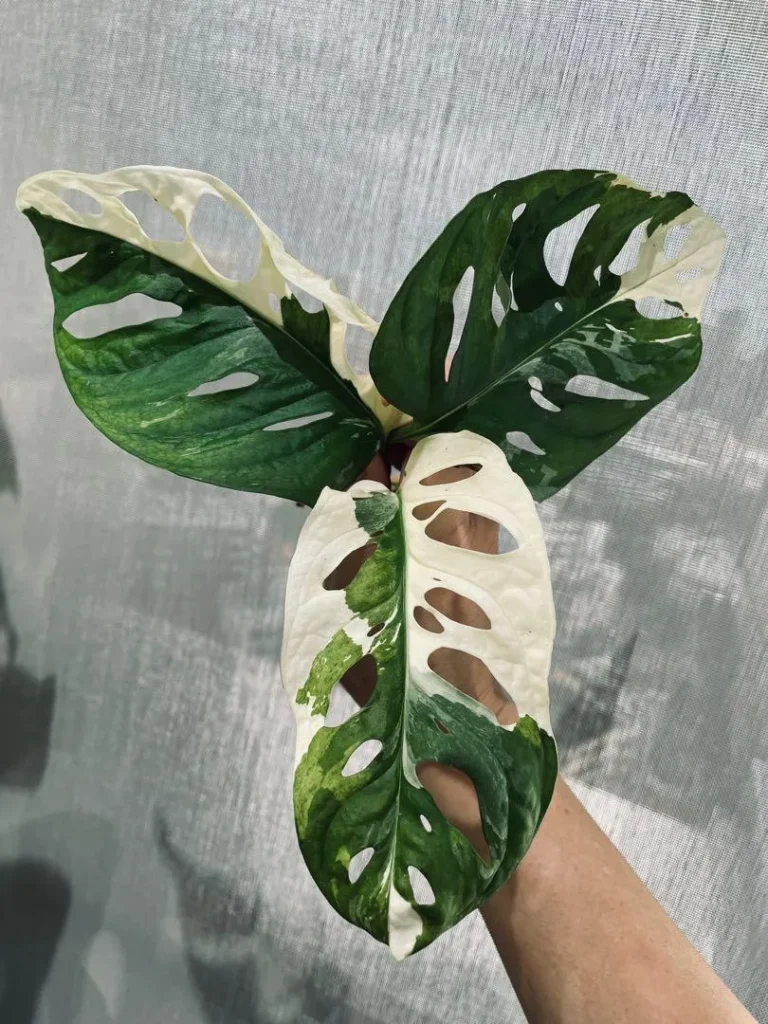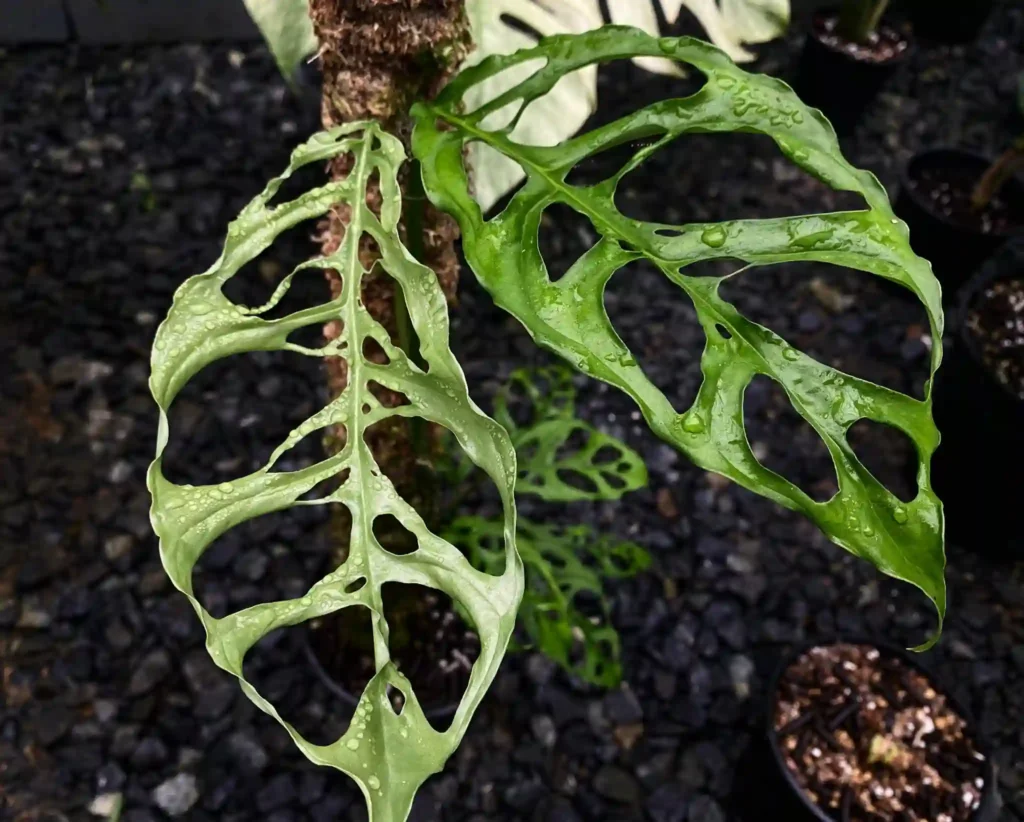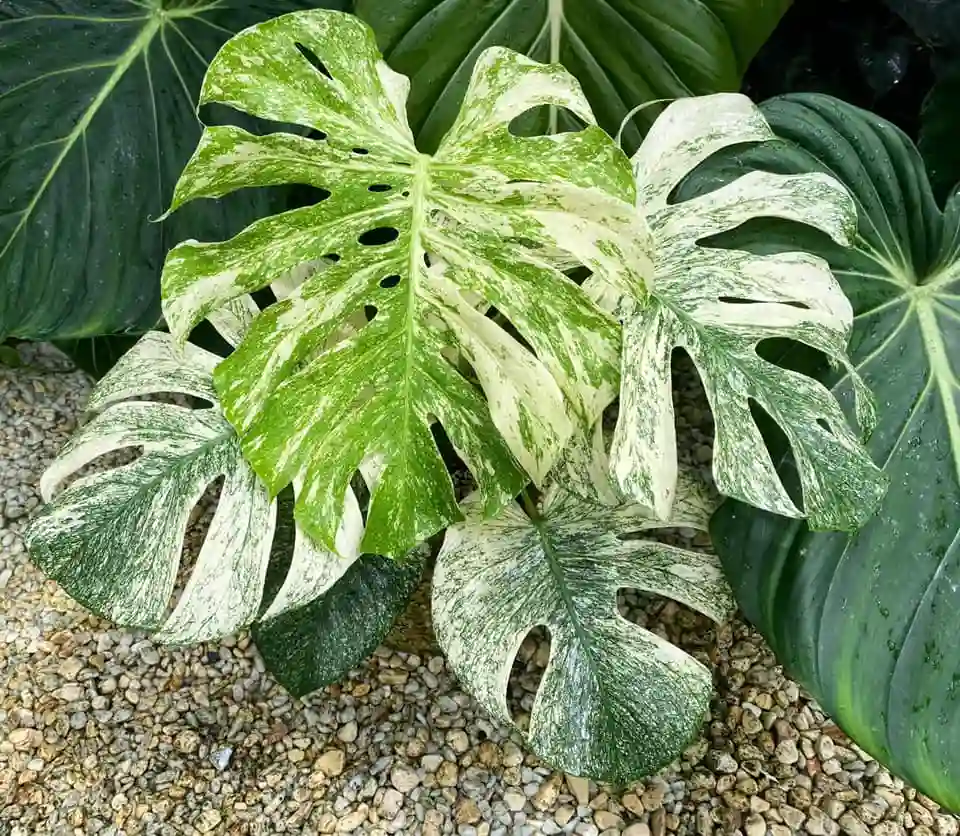
Top 100 Gift Ideas For Plant Lovers 2024
How often to water lemon tree?
I try to water my lemon tree about twice a week, but I always check the soil first. It drives me nuts when the top of the soil feels dry, but it’s still soggy deeper down – talk about misleading! So I always stick my finger in a couple inches to feel how things are under the surface. In the hot summer months, I end up watering way more often, sometimes even every day when there’s a heatwave. I’d much rather overwater a little than let that poor lemon tree get parched, especially when it’s loaded with fruit.
Where to buy a lemon tree?
I actually got my lemon tree at a local farmer’s market, which turned out to be a total win! The seller was a citrus grower, so they knew their stuff and were super helpful. I was so nervous about choosing the right tree, but they walked me through things like looking for healthy foliage and a nice even shape. If you’re not sure where to start, I’d definitely check out smaller nurseries or garden centers, too. Sometimes the big box stores have lemon trees, but it feels like a gamble since the quality can be iffy.
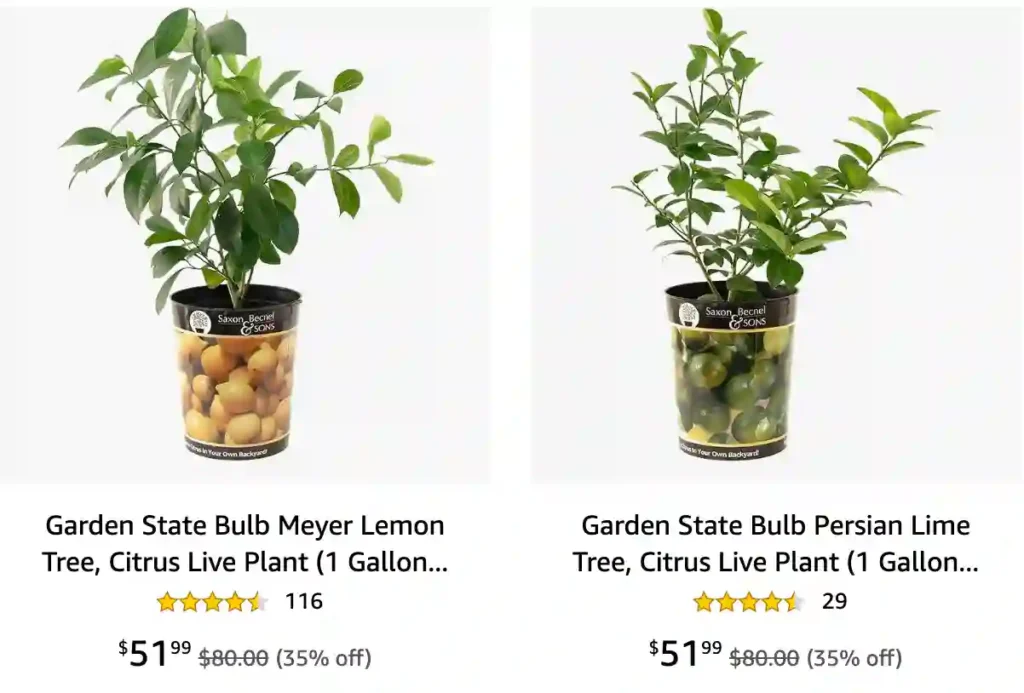
Are lemon trees toxic to cats?
Sadly, yes, lemon trees are toxic to cats. I had no idea before getting my lemon tree, but thankfully my cat Willow has zero interest in munching on plants. Still, it made me a bit anxious at first! Turns out, citrus plants have these compounds called essential oils, and those can make cats pretty sick. It’s mostly in the fruit, but even nibbling on the leaves or stems could be a problem. So, if you’ve got a curious kitty, you might want to reconsider a lemon tree or put it somewhere totally out of reach.
Are lemon trees toxic to dogs?
Unfortunately, yes, lemon trees are toxic to dogs. This was a bummer for me to find out since my dog, Max, loves to explore the backyard. Citrus trees have compounds called psoralens and essential oils like limonene and linalool. While those are fine for us humans, they can really mess with a dog’s system. Eating any part of the lemon tree – leaves, the fruit, even the bark – can cause major tummy troubles, or even worse, long-term effects like liver damage.
What does a lemon tree look like?
Lemon trees are beautiful little trees with a rounded shape and glossy, dark green leaves. They also have really fragrant white flowers that give off a lovely citrus scent before the lemons start to develop. The fruits themselves are the classic bright yellow, oval shape that we all know and love!
Some varieties also have thorns on their branches, so be careful when you’re tending to or harvesting from your tree.
Can lemon trees survive winter?
It depends on where you live and the type of lemon tree. Lemon trees, in general, are sensitive to the cold. They don’t like temperatures dipping below freezing. I live in a place with relatively mild winters, so my potted lemon tree can stay outside with some protection. I wrap it in burlap and bring it closer to the house when there’s a cold snap. However, if you’re somewhere with really harsh winters, you might need to bring your lemon tree indoors or into a greenhouse for the season. Also, some varieties of lemon trees, like Meyer lemons, are a bit hardier than others.
How to care for a potted lemon tree?
Taking care of my potted lemon tree is a labor of love! Here’s what I’ve learned:
- Sunlight: These babies crave the sun! I keep mine in the brightest spot possible, rotating the pot a little every week or so for even growth.
- Watering: I strike a careful balance – never letting it get totally dry but avoiding overwatering too. I use the old “finger in the soil” method to see how wet it is a couple of inches down.
- Feeding: Lemon trees are hungry! Especially when they’re fruiting, I fertilize mine with a citrus-specific fertilizer about once a month during the growing season.
- Potting and Repotting: I started with a well-draining pot and good quality potting mix. As my tree’s grown, I’ve had to repot it into larger containers every few years.
- Pruning: Light pruning keeps it bushy and helps manage the size. I mainly do this after fruiting to encourage healthy new growth.
Do deer eat lemon trees?
Deer generally aren’t big fans of lemon trees because of the strong citrus scent. They much prefer tastier things! However, if a deer is hungry enough, they might nibble on just about anything, including a lemon tree. I’ve heard stories of deer munching on the leaves or even the lemons themselves if other food options are scarce. If you live in an area with a lot of deer, it might be wise to protect your lemon tree, maybe with some fencing or deer repellent.
How much is a lemon tree?
The price of a lemon tree can vary a lot depending on a few factors:
- Size and Age: A young sapling will definitely be cheaper than a mature, fruit-bearing tree.
- Variety: Some lemon varieties, like Meyer lemons, tend to be a bit more popular and could be slightly pricier.
- Where You Buy It: Prices might be higher at a fancy garden center versus getting one from a local grower at the farmer’s market.
- Potted vs. In-Ground: A potted lemon tree will generally be more expensive since it’s already been established in a container.
To give you a ballpark idea, you could probably find a young lemon tree for around $20-$30. Larger, mature trees could easily cost $50-$100 or more.
When do lemon trees flower?
Lemon trees don’t have a super strict flowering season. Some varieties, like the popular Meyer lemon, can flower and have fruit at different stages throughout the year! In general though, you’ll see the most blooms during spring and fall. For me, the biggest burst of blossoms happens in the spring, and those gorgeous white flowers smell absolutely heavenly. Then, the little green lemons start to form, and watching them grow and ripen over the next months is such a treat!
Why are my lemon tree leaves curling?
There are actually a few things that could be causing your lemon tree’s leaves to curl. Here’s a rundown of the usual suspects:
- Watering issues: Both too much and too little water can stress your tree. Overwatering can lead to root problems, and underwatering makes leaves curl to conserve moisture. Check the soil moisture before watering!
- Temperature Extremes: Lemon trees get cranky in sudden heat or cold snaps. Their leaves might curl to try and protect themselves.
- Pests: Sap-sucking bugs like aphids, mites, or scale can weaken your tree and cause leaves to curl and become distorted. Inspect the leaves closely for tiny critters.
- Nutrient Deficiency: If your lemon tree isn’t getting the right nutrition, its leaves might curl or turn yellow. Fertilize regularly, especially during growing periods.
- Disease: In some cases, more serious issues like citrus leaf curl disease can be the culprit. Look for unusual thickening and distortion of leaves alongside the curling.
Why is my lemon tree leaves turning yellow?
The yellowing leaves on your lemon tree could be caused by a few things, based on my own experience and what I’ve learned. Here are the usual suspects I check for:
- Nutrient deficiency: This is a common culprit for yellowing leaves, especially if it’s affecting older leaves first. Lemon trees are feeders, particularly when they’re fruiting. I give mine a citrus fertilizer about once a month during spring and summer, but maybe you’ve forgotten to feed yours recently?
- Overwatering: While underwatering can cause yellowing, so can overwatering. It can suffocate the roots and prevent them from taking up nutrients. Stick your finger in the soil to check – if it’s soggy down deep, hold off on watering for a while and let things dry out a bit.
- Magnesium deficiency: This is a common issue for citrus trees, showing up as yellowing between the veins of the leaves. Epsom salts are a good source of magnesium and an easy fix. I just dissolve a couple tablespoons in a watering can and soak the soil around the base of the tree.
- Lack of sunlight: Lemon trees are sun-worshippers! If it’s not getting enough bright light, that can definitely lead to yellowing leaves. Try moving your tree to a sunnier spot, or consider using a grow light if it’s indoors.
What is eating my lemon tree leaves?
It’s so frustrating to find your lemon tree leaves full of holes or ragged edges! Here are the most likely culprits snacking on your leaves:
- Caterpillars: Several types of caterpillars love munching on citrus leaves. Orange dogs (the caterpillar form of the giant swallowtail butterfly) are common culprits. They’re big, green, and look like bird droppings at first glance. Check carefully for those!
- Leafminers: These tiny pests tunnel through the leaves, leaving squiggly trails. While they mostly do cosmetic damage to mature trees, they can harm young ones.
- Grasshoppers and Katydids: These guys take big chomps out of leaves, leaving them with raggedy edges.
- Slugs and Snails: These slimy critters are sneaky, usually doing their munching at night. Look for silvery slime trails as evidence.
Inspect your tree closely, day and night, to try to identify the pest. Once you know who’s responsible, you can take steps to manage them. Hand-picking, insecticidal soap, or encouraging natural predators (like ladybugs!) can often do the trick.
Are coffee grounds good for lemon trees?
Coffee grounds can be good for lemon trees, but it’s important to use them wisely! Here’s why:
Pros:
- Mild Acidity: Lemon trees love slightly acidic soil, and coffee grounds are naturally acidic. Adding them as a mulch can help lower the pH a bit.
- Nutrients: Coffee grounds contain nutrients like nitrogen, potassium, and magnesium, which are beneficial for lemon trees.
- Organic Material: As they break down, coffee grounds enrich the soil, improving its structure and water retention.
Cons:
- Not a Miracle Fertilizer: Coffee grounds are low in some important nutrients lemon trees need. You shouldn’t replace regular citrus fertilizer with them.
- Potential Mold: If piled on too thickly, especially when wet, coffee grounds can mold, which could harm your tree.
- Over-Acidity: Overusing them can make the soil too acidic for your lemon tree.
How I Use Them:
I sprinkle a thin layer around the base of my lemon tree every other month or so and lightly mix it into the topsoil. I always monitor the soil moisture and pH, and I still use a citrus-specific fertilizer regularly!
